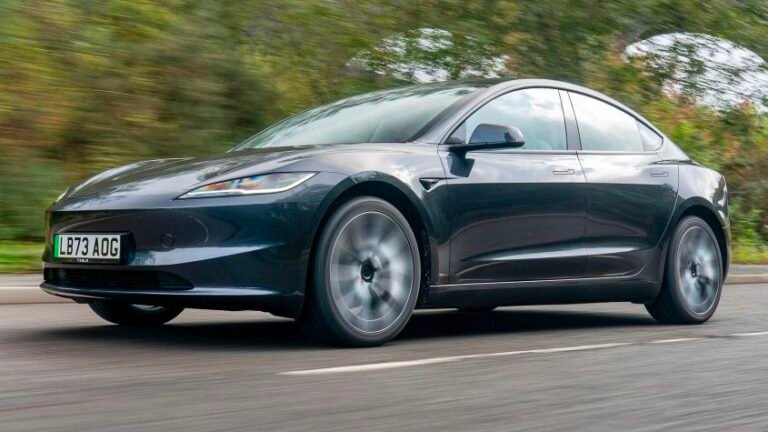
Sometimes off-year election results are not predictive of future elections. Republicans need to hope that this is the current situation as we look at the 2025 political landscape and try to project to the 2026 midterm elections.
In the first 115 days of the Trump presidency, Republican underperformance has gone from a peculiar anomaly to a recurring problem. If the White House and Republican congressional leaders allow it to continue, we will all be saying hello at the start of the next Congress to Speaker Hakeem Jeffries (D-N.Y.).
Thus far in 2025, Republicans won but significantly underperformed (by about 15 points) in two ruby-red Florida special House elections.
A special election in a New York congressional district known as the North Country was then avoided by pulling back incumbent Rep. Elise Stefanik (R-N.Y.) from her nomination to be United Nations ambassador. The unstated reason was the likelihood of a very close special election to fill Stefanik’s potential vacancy. Many have forgotten that this district was represented by a Democrat as recently as 2014.
Given the district’s dependency on business interaction with its Canadian neighbors to the north and west, and the depressing effect on that commerce resulting from Trump’s 51st state war of words and subsequent tariffs, a Republican defeat in a special election loomed as a very real possibility.
Then there is Wisconsin. Last November, President Trump carried Wisconsin by one-half of one percent. Five months later, on April 1, in a special election for a seat to determine the majority on the Wisconsin Supreme Court, the Republican candidate lost by 10 points.
Millions of dollars were spent on both sides to clearly define one candidate as a hard-core leftist and the other as a solid conservative endorsed by Trump.
How does more than a 10-point swing occur in just five months? Republicans must admit that Elon Musk’s chainsaw attack on federal employees and programs has backfired. Republicans are going to eat that picture of the richest man in the world wielding a chainsaw at the Conservative Political Action Conference and taking pleasure in ruining people’s careers and throwing families into economic distress.
Voters agree that some federal programs waste money and we can certainly get by with fewer federal employees. However, voters think reform should come about as a result of an orderly and thoughtful process. Those concepts have been foreign to Musk and his Department of Government Efficiency. Then Musk himself exacerbated the situation with a personal last-minute appearance in Wisconsin. Whose idea was that?
Results in Wisconsin uncovered another larger problem for the future of Republicanism and conservatism. Simply stated, due to Trump’s style and personality, more so than policy, Republicans have pushed away reliable, economic and family-oriented middle-class voters.
Those likely voters have been replaced in the Republican coalition by working class voters who comparatively are younger, lower income and less educated.
Think of it as a 37-year-old professional college-educated woman walking away from all Republicans and a 23-year-old high school-educated HVAC apprentice discovering, “Hey, did you see what Trump said? I really like him.”
The trade-off in numbers may be about even, but the trade-off in voter turnout is not. That professional woman is going to vote in every election, whereas the HVAC apprentice, not so much. He will be there to vote for Trump, but for a special election? Forget it.
Recently, the respected incumbent Republican Mayor of Omaha was defeated in a supposedly nonpartisan election in which her opponent attacked her for supporting Trump in 2024. Republicans are relying on Trump’s new working-class coalition to overcome these attacks.
When they do not show up, Republicans lose.
On Tuesday, Democratic primary voters on opposite sides of Pennsylvania sent contradictory signals about the direction they want their party to take. In Pittsburgh, Allegheny County Controller Corey O’Connor, son of a former Mayor, positioned himself as a moderate problem-solver in his defeat of incumbent liberal Mayor Ed Gainey.
However, in Philadelphia, incumbent District Attorney Larry Krasner overcame a challenge by Municipal Court Judge Pat Dugan, who attacked Krasner for what he termed his soft-on-crime positions. Krasner, a longtime Republican target due to his progressive policies, was impeached by the Pennsylvania House of Representatives in 2022, but the state Supreme Court ruled the action unconstitutional on the basis of its timing.
Trump likes to stoke his young working-class male support by attending Ultimate Fighting Championship matches. Good for him. But he needs to start convincing those UFC fans why it is important that they vote, even when he is not on the ballot.
Trump is capable of doing that. His success at it in the midterms could make or break his policy agenda in the last two years of his presidency.
But for now, warning signs are flashing brightly for Republicans. These low-propensity voters are key to keeping congressional control in the 2026 midterms. Intense political ground games that touch voters repeatedly are the key to Republican success in the immediate future.
Kevin Igoe is former chief of staff of the Maryland Department of Budget and Management. He was also deputy chief of staff of the Republican National Committee and executive director of the Maryland Republican Party. He served in the Reagan administration.



